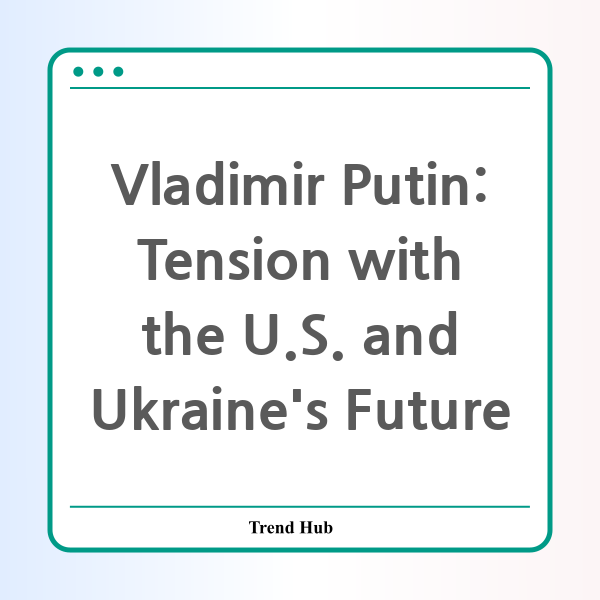* This website participates in the Amazon Affiliate Program and earns from qualifying purchases.

Are we witnessing the brink of a significant geopolitical shift with regards to Vladimir Putin and U.S.-Russia relations? The current climate suggests a deterioration of relations, underscored by recent communications (or lack thereof) between Putin and the U.S. leadership. With the ongoing crisis in Ukraine at the heart of this diplomatic tension, understanding the evolving situation is crucial.
The Kremlin has openly stated that its ties with the United States are on the edge of collapse. Russian officials have insisted that the U.S. must grasp the underlying issues fueling the turmoil in Ukraine. As the war drags on, Ukraine's need for robust support from the U.S. becomes ever more critical. Ukrainian President Volodymyr Zelenskyy is expected to play a pivotal role in future negotiations, highlighting the significance of U.S. backing.
Donald Trump, looking to reinvigorate his presence on the world stage, has been vocal about his desire to end the war in Ukraine. His recent appointment of retired General Keith Kellogg as the U.S. envoy to Ukraine and Russia signals a potential shift in diplomatic tactics. Kellogg's first priority will be to align with allies at the Munich Security Conference and subsequently propose fresh ideas for peace, which could lead to groundbreaking developments.
However, the path to peace is complex and fraught with challenges. Trump has claimed to have spoken with Putin about ending the conflict, but the Kremlin has refrained from confirming these discussions. This uncertainty raises questions about the sincerity and viability of Trump's push for a swift resolution.
Kellogg's proposed peace plan includes military aid for Ukraine conditioned on negotiations and might call for a ceasefire with the prospect of elections to stabilize the situation. Yet, the intricacies of such plans—especially the suggestion of holding elections during wartime—could lead to unforeseen complications, particularly with the specter of corruption and foreign interference looming over the electoral process.
Furthermore, the ongoing Russian military advances suggest that the Kremlin may be less inclined to negotiate while gaining ground. With cities like Toretsk under siege, the implications for a peaceful resolution appear dim, as Russian forces may feel emboldened in their territorial ambitions. This scenario raises questions about whether the negotiations proposed by Trump and Kellogg are based on genuine attempts for peace or mere political posturing.
In conclusion, the current dynamics between Vladimir Putin, the United States, and Ukraine highlight the precarious nature of modern diplomacy. As various factions prepare for potential talks, the fate of millions hangs in the balance. The convergence of past grievances, current attitudes, and future aspirations encapsulates a complex narrative that defines this historical moment. For Ukrainian citizens, the urgency for a resolution is palpable, while international observers remain skeptical of any quick fixes.
* This website participates in the Amazon Affiliate Program and earns from qualifying purchases.